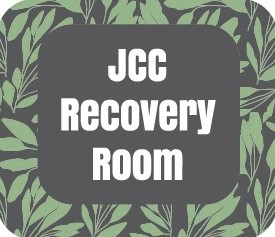Posted by
Jennifer Goldston on April 28, 2022
 Recovery… to regain, rehab, repair, self-care: all fitness industry buzzwords. However, if you’ve taken Group Centergy at the JCC then you’ve heard the importance of Recovery countless times. The yoga, pilates-fusion based class ends with 5-10 minutes of guided meditation grounded in the philosophy that what you do after a workout, is as important as what you are doing during one. But what is Recovery? Is it only the absence of activity, or are there actionable steps to taking care of your whole self, versus simply taking time off?
Recovery… to regain, rehab, repair, self-care: all fitness industry buzzwords. However, if you’ve taken Group Centergy at the JCC then you’ve heard the importance of Recovery countless times. The yoga, pilates-fusion based class ends with 5-10 minutes of guided meditation grounded in the philosophy that what you do after a workout, is as important as what you are doing during one. But what is Recovery? Is it only the absence of activity, or are there actionable steps to taking care of your whole self, versus simply taking time off?
Elite athletes and now fitness enthusiasts alike, are applying concerted and consistent recovery measures to their workout routines. Ranging from compression therapies to ice and heat technology, foam rolling, stretching, making sleep a priority… exercise recovery is being viewed as an integral part of working out, and not a tangential one.
How you recover depends completely on what you’ve done to workout, but also on what you are trying to achieve. While specific muscle recovery might be exactly what someone who is training for a race needs, while a variety of approaches may be more beneficial for the casual exerciser.
In addition to active and passive movements, recovery days can also include hydration, Epsom salt baths, meditation, napping (my favorite!), and nutritional supplements. While not all these examples are necessary, options should be individualized as needed.
In short: Recovery should have a three-pronged approach; Sleep, Nutrition and Self-care.
Now we know what Recovery is, but where does it start? Unfortunately, most people don’t pay attention to recovery until they can’t avoid it, but that does not need to be the case. People wait because they aren’t proactive and because traditionally recovery has been viewed as ‘anything that repairs the damage or impact to the body or mind.’ However, seeking out recovery methods only when forced to is a reactive response. Imagine how reduced your risk of injury might be if you were taking care before you even got hurt?
Proactive recovery may look like stretching out tight spots immediately, meditating after a workout, or taking a few minutes to use a massage gun before continuing with your day.
Prevention is a huge component of recovery, but it is not the only one. Recovering proactively can also improve your performance. Recovering from your previous workout prepares you for the one you do tomorrow. And like with anything, consistency is key. What you do routinely will have greater impact than what you do infrequently.
The JCC recognizes the importance of recovery as an integral part of any health regime and invites you to check out our Recovery Room for all of your needs!